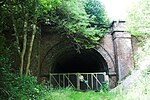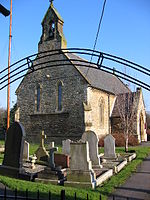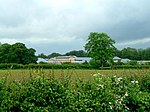South Cave railway station
Disused railway stations in the East Riding of YorkshireFormer Hull and Barnsley Railway stationsPages with no open date in Infobox stationRailway stations in Great Britain closed in 1959Railway stations in Great Britain opened in 1885 ... and 2 more
Use British English from February 2017Yorkshire and the Humber railway station stubs

South Cave railway station was a station on the Hull and Barnsley Railway, and served the village of South Cave in the East Riding of Yorkshire, England. The station opened on 22 July 1885, closed to passengers on 1 August 1955 and closed completely on 6 April 1959.
Excerpt from the Wikipedia article South Cave railway station (License: CC BY-SA 3.0, Authors, Images).South Cave railway station
Kettlethorpe Hill,
Geographical coordinates (GPS) Address Nearby Places Show on map
Geographical coordinates (GPS)
| Latitude | Longitude |
|---|---|
| N 53.7831 ° | E -0.6096 ° |
Address
South Cave
Kettlethorpe Hill
HU15 2AE , North Cave
England, United Kingdom
Open on Google Maps








